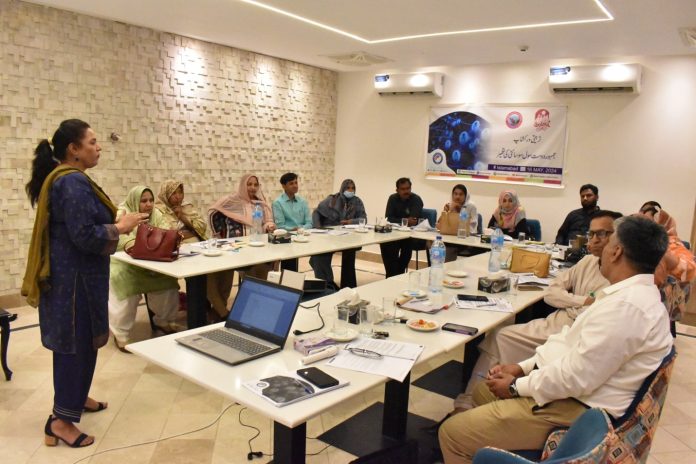Islamabad, May 30, 2024: FAFEN’s Shaheen Regional Network conducted a capacity-building session for its Regional Member Organizations (RMOs) in Islamabad on May 16, 2024. The purpose of the capacity-building session was to equip members of the Shaheen Regional Network with essential knowledge and practical skills to enhance their effectiveness in their roles. The training aimed to deepen participants’ understanding of legal and constitutional frameworks, address political polarization, improve media and communication skills, support civil society operations, strengthen research and data collection abilities, and provide a comprehensive overview of local governance systems. By fostering a collaborative environment and offering hands-on practice, the training sought to empower participants to advocate for electoral reforms, promote social cohesion, effectively document and communicate their activities, and contribute to making local governments more effective and responsive.
The training sessions engaged the participants in a discussion about the definitions of the Constitution and articles related to elections in the constitution and the Elections Act of 2017. Participants were invited to provide suggestions for improving the electoral process, and detailed explanations were given on district-level dialogues with electoral stakeholders concerning reforms and procedures.
The participants were also introduced to FAFEN Digital and were guided on mobile phone camera settings and the importance of good videography. The participants practiced using a tripod and microphone to improve their skills for recording an effective video. The session helped the participants improve their comprehension of the Constitution and the Elections Act of 2017, enhance their understanding of polarization and methods to unite citizens around common interests, and acquire practical skills in mobile videography, including camera settings, tripod, and microphone usage, introduce to FAFEN Digital, broadening their capacity for digital engagement and documentation, and recognize challenges faced by civil society and the importance of a supportive operational environment.




